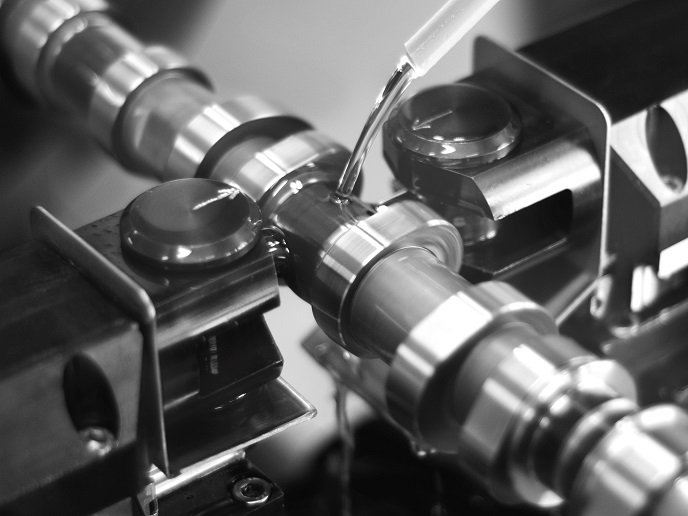Reactive process fluids will help parts give friction the slip
Although solutions such as lubricants and coatings have advanced, most still face important limitations with consequences for the competitiveness of manufacturers and for the environment. Triboconditioning® technology for surface optimisation, developed by the Swedish SME Applied Nano Surfaces (ANS), is based on reactive process fluids that form nanolayers on steel or cast-iron components. EU support for the Triboconditioning project pushed the technology readiness level across the finish line for specific applications, resulting in three licence agreements, two with major automotive original equipment manufacturers.
Slip-sliding away
The Triboconditioning project focused on four different product groups: big bores, small bores, shafts and gears. Christian Kolar, CEO of ANS and project coordinator, explains the technology: “We apply special process fluids with reactive chemistries to surfaces and then use hard tools and high pressure to press in surface peaks while sliding on the surface. The heat generated makes the fluid react with the surface, forming low-friction anti-wear nanolayers chemically bound to the surface.” The result is a smooth surface with very good load-bearing and optimised surface chemistry. The latter significantly improves lubricant film formation, increasingly important as industries move towards lubricants with lower viscosity and fewer harmful additives.
Flexible process, flexible licensing partnerships
Triboconditioning® minimises friction and wear and enhances the effect of a variety of lubricants. The process can be applied using standard machining and tooling systems which brings great flexibility and easy implementation. Customers can send their components to ANS for in-house treatment in cases requiring prototyping, manufacturing scale-up testing or limited volume production (up to about 100 000 parts per year). A partnership network is being established to offer similar services in markets where ANS does not yet have facilities. As production volumes increase, ANS supports the customer in transferring the process technology to the customer’s plant or its supplier. A licence agreement covering the right to use the Triboconditioning® process can be implemented as a fixed annual fee per product area or a variable fee per treated part.
Optimal performance with lower cost and environmental impact
Triboconditioning® optimises the surface of steel or cast-iron components both physically and chemically, whereas existing technologies typically target one or the other. As compared to these, Triboconditioning® significantly improves performance with limited added cost, lower environmental impact and minimal waste. Kolar summarises: “Triboconditioning has enabled us to move from lab/early production testing to full-scale implementable systems to help our customers lower friction and wear. We also began developing our novel gear treatment process during the project. It has significantly minimised friction and wear in gear contacts, widely applicable in industry and for electric vehicles (EVs). In the latter, it can improve drive range and vehicle transmission longevity as well as minimise transmission noise.” The compound annual growth rate of the global EV market from 2019 to 2026 is predicted to reach 25.6 %, increasing from EUR 103 billion to EUR 508 billion. Bores, shafts and gears of all kinds will be on the path of least resistance thanks to Triboconditioning®.
Keywords
Triboconditioning, friction, lubricant, gear, process fluids, nanolayers, EV, coatings, electric vehicle, surface treatment

